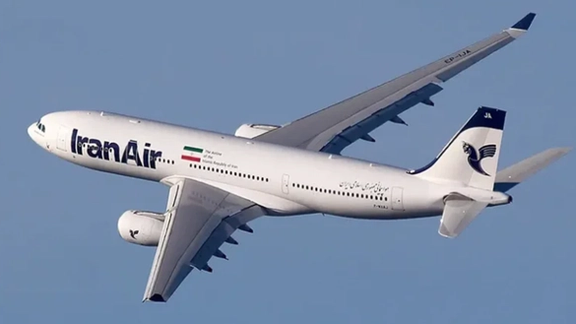Iran has been deeply involved in Russia’s war effort in Ukraine since mid-2022, providing drones, spare parts, and training. However, the provision of missiles is viewed by Western powers as a significant escalation, warranting a strong response.
“The Department of State is concurrently designating three entities, including Iran Air, and identifying five vessels as blocked property involved in the proliferation of Iranian weapons systems to Russia,” the US Treasury announced on Tuesday, shortly after the three European powers said they would cancel all air service agreements with Iran.
“Our international partners are announcing measures that will not allow Iran Air from operating in their territories in the future and are pursuing further designations of Iran- and Russia-based individuals, entities, and vessels involved in the transfer of Iranian lethal aid to Russia,” the US Treasury added.
The E3 sanctions against Iran’s civil aviation industry are particularly significant, as Iran Air reportedly operates an average of 24 weekly flights each way to at least nine European cities, including Paris, London, Frankfurt, and Rome, according to information obtained by Aviacionline via Cirium.
Iran Air is accused by the US Treasury of having transported goods "on behalf of Iran’s Islamic Revolutionary Guard Corps (IRGC) and Ministry of Defense and Armed Forces Logistics (MODAFL)."
Iran's Foreign Ministry spokesman on Tuesday strongly condemned the "unusual" statement by the E3 regarding the cancellation of bilateral air service agreements with Iran and sanctions against Iran Air, saying it will be met with a reciprocal response from Iran. Nasser Kanaani once again denied the West's claim about Iran selling ballistic missiles to Russia, calling it baseless and false.
E3's response to Iran's missile shipments
Earlier Tuesday, France, Britain and Germany said they "will pursue the designations of significant entities and individuals involved with Iran’s ballistic missile program and the transfer of ballistic missiles and other weapons to Russia."
Britain separately announced a new wave of sanctions on Iran and Russia, adding seven designations under its Iran sanctions regime and three under its Russia regime. Some of those sanctioned include firms and entities with ties to the drone industries in Russia and Iran including Iran's Anzali Free Zone Organization as well as Baharestan Kish, Chekad Sanat Faraz and Saad Sazeh Faraz Sharif companies. Two of the companies, Britain said, are involved in producing parts for the drones supplied to Russia.
Ukraine's Foreign Ministry spokesman said on Tuesday the country could cut its ties with Tehran if Russia uses Iranian missiles in war. "I will not say now exactly what is meant by devastating consequences, so as not to weaken our diplomatic position. But I can say that all options, including the one you mentioned (cutting diplomatic relations with Iran), are on the table. If this transfer indeed happened, and if the fact of usage gets recorded - and believe me, it will become public once it has happened - then, there will be consequences," Heorhiy Tykhyi said.
Headache for Iran's new administration
US Secretary of State Antony Blinken confirmed in a press conference earlier in the day that "Russia has now received shipments with these ballistic missiles, and will likely use them within weeks in Ukraine, against Ukraine."
"Iran’s new president and foreign minister repeatedly said that they want to restore engagement with Europe, they want to receive sanctions relief. Destabilizing actions like these achieve exactly the opposite," Blinken noted.
Iran’s executive branch of power has very little say in foreign policy and defense. Strategic decisions, such as a full support for the Russian war effort in Ukraine, are made by Supreme Leader Ali Khamenei in consultation with his close aides and the top brass of the Revolutionary Guard.
The consequences of such decisions, however, will be borne almost entirely by ordinary Iranians and the administrations, which have to manage the day-to-day affairs of the state.







